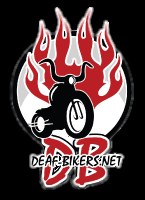Short History of ASL and Deaf America by mergfkt on YouTube
Actually, I just was boring and looking around the Internet on YouTube webiste, and I was too enjoyed looking at the videos theirs are deaf people, because I am Deaf. Until, I noticed the title said "Short History of ASL and Deaf America" on related videos list, and this woman is a hearing person, she is very fascinating about ASL and Deaf America history. I know that I cannot hear what she had said about it, but she wrote the begun translation about this on bottom here. So, here you go and have a good time.
About this Video:
Summary of Through Deaf Eyes. I meant for this video to be a history lesson for ignorant hearing people, but I'm adding a transcript just in case Deafies would like to read it & maybe help me correct anything. Thanks. :)
BEGIN TRANSCRIPT:
Of course, you can't learn sign language without learning knowing some history about it. So for that I really recommend that you buy a program called Through Deaf Eyes. It's a documentary on the history of Deaf Americans in the past 200 years. It's amazing. I've watched it like 4 times now (UPDATE: Now 5 times), & every time I'm just amazed & enthralled at the history.
But there's some basic things that you should know.
Deaf people have been in existence almost as long as people have, so it's nothing new. They haven't always had sign language, especially in America. There were ways to communicate, but not necessarily a language. Many people think that sign language is universal, but it's not. Not all deaf people know sign language, not all countries use the same sign language. In fact, our country's sign language is closer to French than British, which is kinda weird because Brits use -- English, & we use American English. So you'd think they might be similar, but they're not. Here's why: in the beginning of the "religious era" in America, deaf people were shut out of the movement. So, that's when the awareness started. There was a deaf teacher whose name was Gallaudet, (CORRECTION: Gallaudet was hearing.) that's where Gallaudet University comes from. But he came to teach, & there was another guy named Laurent Clerc, which... heh, in sign language there's no way to tell how to pronounce things, so for the first 2 years of sign, I thought he was 'clerk' but he's 'claire'.
Anyway... he came to America & was one of the first deaf teachers of sign language or teaching deaf people. & he noticed that some of the deaf people already had some signs that they were using, but to create a language he took his French Sign Language & blended it with some of the signs that he saw people already using in America, & that's how we got our American Sign Language. So that's why it's closer to French than British. Little known fact.
But it's important to know the history because if you don't know the history how can you get into the language, you know? You just know it, you don't really get into it.
Deaf people in schools haven't always been taught sign language. Right now there are schools for the deaf that people use sign language in, but for a while they used the oral method, which is actually something that Alexander Graham Bell pushed very heavily. Um, I think he was one of the main creators of the oral method actually... & it's kinda weird because we always think of AGB as a hero because he created the telephone, y'know? But he had a deaf wife, & I think either his sister or his mother was deaf. I don't remember which one. But he was very involved with the deaf community, & he still thought that the oral method was best. It makes me grumpy because I just don't think it's right to push that so much. For a while, signing was outlawed in schools & he was also one of the earliest eugenicists, & he thought that deaf people should not only be separated from "normal people", but also from themselves because of the theory of eugenics. One thing that is very important to know about deaf culture is that deaf people... obviously cannot talk on the phone like teenagers do. Especially not back then when they didn't have TTYs or VRS. So they were cut off from human contact, & if you've ever tried to go without human contact for even a day, it's very hard, & it really makes you clench up inside. So I feel frustrated that deaf people had to go through that. But because of that, a lot of deaf people today have speech skills. They can talk, but a lot of deaf people don't like to because people assume that since they talk they can hear, & talking is a 2-way communication. A lady from the documentary said she was very successful in the oral method, but she can't hear, so she said it's much easier to turn off her voice so people won't assume she can hear them. That's a lot of the misconceptions about the deaf community is that when they talk they sound retarded. They don't. It's surprising how "normal" they sound when they talk. There are occasional, what some people refer to as "oral failures," unable to learn voicing. But a lot of deaf people are very successful in the oral method. (CORRECTION: The number of 'oral failures' is most likely larger than the number of 'successes.' Deaf people who have residual hearing are more likely to be successful at this method.)
So, that's your history lesson for the day, I hope you enjoyed it. I'll probably post another one later, but I was just really bored & decided to make a bunch of videos for y'all. Anyway, be seeing you next time! Have fun learning!










0 Comments:
Post a Comment
<< Home